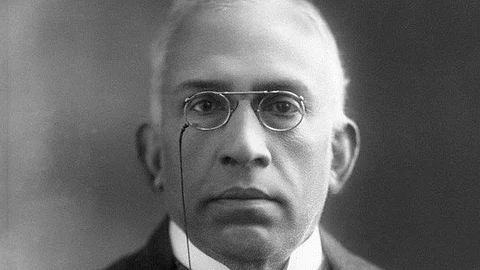

Mere days ahead of the release of Akshay Kumar’s Kesari 2, a biopic, tributes began pouring in for the person on whom the film is based: Chettur Sankaran Nair. Despite playing a big role in the country’s history, Chettur remained largely unknown. New interest suddenly befell Chettur, eminent jurist and constitutionalist, who held one of the highest posts as a member of the Viceroy’s Executive Council in British India.
Interestingly, some of the highest compliments came from Prime Minister Narendra Modi, who other leaders and supporters of the Bharatiya Janata Party soon echoed. Modi said that every child and adult of Punjab, Haryana, and Himachal Pradesh should know about Sankaran Nair and his contributions.
That Chettur, an Indian, could reach such a highly coveted position in British India, managing 33 departments under him, was in itself celebratory. But what raised Chettur’s status in the public eye was his refusal to continue in the Council after the bloody massacre at Jalianwala Bagh in 1919, when British forces killed hundreds of civilians at a peaceful gathering. He later fought and lost a civil suit when Michael O’Dwyer, the Lieutenant Governor of Punjab, sued him for publicly blaming him for the massacre. Chettur refused to apologise and paid the penalty.
Neither his resignation nor his brave court battle was lauded, some believe, because of his differences with MK Gandhi. He had also distanced himself from the Congress after joining the party in its early years and becoming its youngest president in 1897 at the age of 40.
Modi and other BJP leaders like Rajeev Chandrasekhar are now attempting to shame the Congress for not giving due importance to Chettur’s history. While Modi said they ‘abandoned a brave nationalist’, Chandrasekhar called him one more example of how Congress ‘airbrushes leaders from the party’.
Liberal constitutionalist, opposed to Gandhi
Chettur, a Malayali from Palakkad, studied law in Madras and became Chief Justice of the Madras High Court before becoming a member of the Viceroy’s council. He was a liberal constitutionalist who earned several firsts– the first Indian to be India’s advocate general, the first High Court judge without a barrister’s degree, and, of course, the youngest president of Congress at the time.
Within the party, he became one of the moderates alongside Gopalakrishna Gokhale and Surendranath Banerjee, says Rajasekharan Nair, retired professor of history, who edited a book of essays on Chettur.
“The moderates did not strive for quick freedom, but wanted to attain democracy in steps. They were afraid that if the colonial rule that had united people of different languages, religions and castes disappeared all too suddenly, then India would once again fall into a thousand different pieces,” Rajasekharan says.
The moderates, including Chettur, used the method of public meetings and petitions, while a militant faction within the Congress had a different approach, he adds. The British, all the while, thrived on their methods of divide and rule, pitting Muslims against the Hindu majority.
Gandhi, who came into the picture, supported the Khilafat movement (of Indian Muslims against British policy in Turkey) and advocated the noncooperation movement. Chettur feared that mixing the two - one, a religious cause and the other a political one – would lead to communal issues, Rajasekharan says. “He had called representatives of the government and the Congress for a compromise, but that did not work out, and he put out a public statement against Gandhi. That is what led to Chettur’s book Gandhi and Anarchy,” Rajasekaharan says.
Writer and historian Pushpa Kurup, in a review of the book, says that Chettur was opposed to several of Gandhi's views, like his tirade against machinery or his justification of the caste system.
"There is also another story about Chettur’s resignation. The Viceroy apparently did not want him to resign and asked who would replace him. Chettur is said to have pointed to the peon and said, he can. To a bewildered Viceroy, he said that the peon was well-dressed and would say yes to everything, and that was exactly who they needed. So goes the story," Pushpa says.
Sudden attention by BJP
The BJP’s sudden interest in the jurist is seen by some as yet another attempt at the appropriation of a significant figure in Indian history. Pro-right-wing supporters may be pleased with Chettur’s opposition to the Malabar Riots of 1921 – a rebellion by Muslims against the British and feudal lords in which several Hindus were killed.
But then, some of his rulings as the High Court judge, favouring intercaste and inter-religious unions, may not be to the liking of Hindutva forces.
Some of Chettur’s significant struggles – such as to make the Indian Act of 1919 favourable to India – went largely unnoticed, says Rajasekharan. “Chettur is one of the few people who have worked hard to make India a parliamentary democratic republic.”